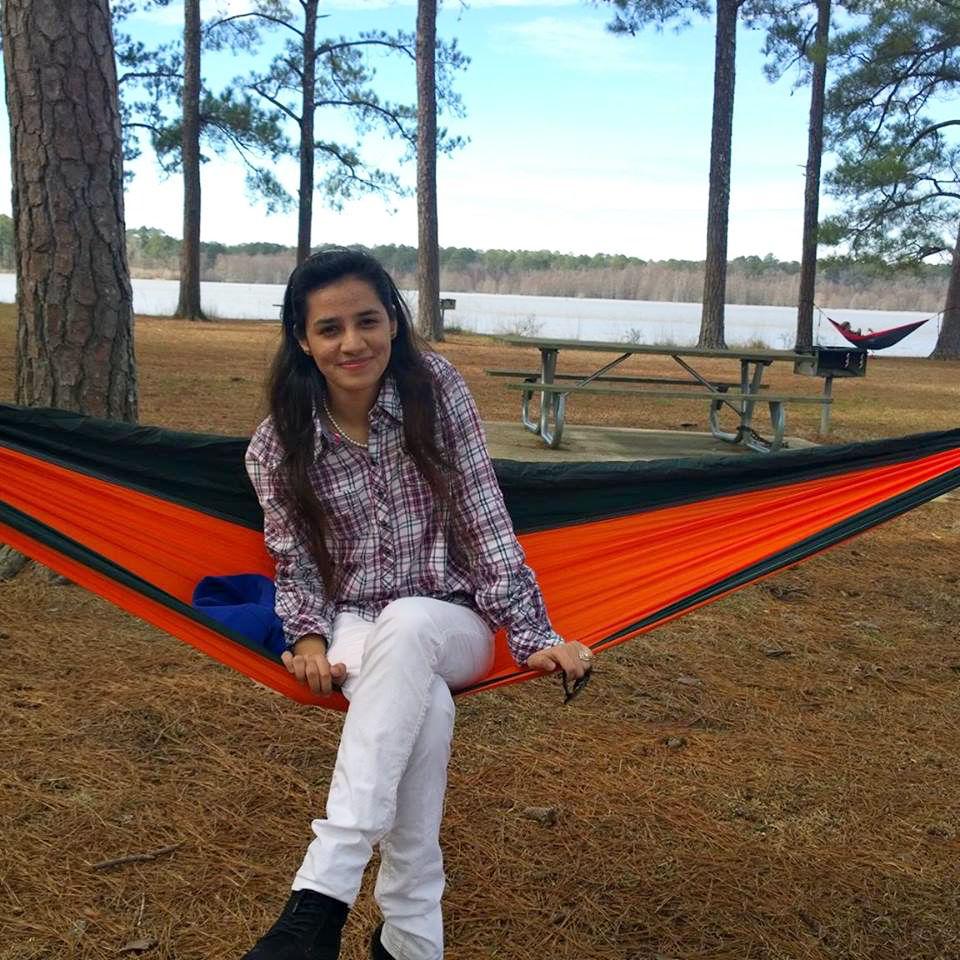Kiran Qureshi, a native of Pakistan, is the sixth international student to study at Mississippi State University through the International Research and Exchanges Board (IREX) within the United States Department of State.
IREX is a function of the department and facilitates the Global Undergraduate Exchange Program in Pakistan (Global UGRAD-Pakistan), which sends Pakistani students to the U.S. to study.
Qureshi, senior computer science major, is from Hyderabad, a metropolitan city in Pakistan. Before the spring semester began, Qureshi met in Washington, D.C. with other students in the Global UGRAD-Pakistan program. There, Qureshi and her fellow international students went through several seminars and conferences put on by IREX to acclimate them to life in the U.S.
Also in Washington, D.C. students are assigned mentors, advisers and host families to help them transition into their assigned American universities.
After the conclusion of the semester, the international students will meet again in Washington, D.C. to talk and learn from one another about their experiences abroad.
Qureshi said IREX promotes a good relationship between Pakistan and the U.S. She said the alumni of Global UGRAD-Pakistan implement programs in Pakistan for the long-term improvement of their communities and country.
“It is basically concerned with the cultural exchange between the two countries,” Qureshi said.
IREX had a total of 120 international students in the group studying in this year’s spring semester. These students were distributed individually to different universities throughout the U.S.
“I think when you are alone you learn a lot. Alone makes you stronger,” Qureshi said.
Karin Lee, director of international relations at MSU, is Qureshi’s assigned adviser. Lee said she helps monitor Qureshi’s progress with the Global UGRAD-Pakistan program.
“What I really like about this program is it exposes our students here to a variety of students from Pakistan,” Lee said.
Lee said MSU has an advantage over other universities because of the warmer climate, the safety of the city and a competitive cost compared to other universities.
Qureshi must also complete a cultural passport to America as part of the Global UGRAD-Pakistan program. The cultural passport includes six categories that must be achieved in order to be obtained.
Several categories include community service, creating a blog, uploading pictures and attending musical concerts.
Qureshi said the cultural passport focuses on exploration of the United States’ culture and emphasizes mingling with people from the U.S.
“Pakistan is really quite similar to America,” Qureshi said.
Lee said the cultural passport challenges the stereotypes the Pakistani students might have coming into the U.S.
Qureshi said she plans to hold a cultural presentation in early April. She said she will incorporate traditional style of dress and jewelry and may also cook traditional Pakistani food for the audience to taste.
She said she wants to debunk any negative myths Americans may have about Pakistan.
Muhammad Nadeem, Qureshi’s mentor, is a Ph.D. student at MSU in computer science and is also a Pakistani native. Nadeem has served as a mentor to students through the Global UGRAD-Pakistan program for almost three years.
Nadeem, studying under a similar exchange program called the Fulbright program, will give guidance to Qureshi on what to share during her cultural presentation.
He said mentors use a guideline provided by the U.S. Department of State to teach students how to use technology such as MyCourses to submit homework or other coursework, writing for an American audience and time management when testing.
Nadeem said the goal of this program is to reduce the gap between the U.S. and Pakistan.
“When we go back, we try to change the things around us in a positive way,” Nadeem said.
Nadeem said Qureshi will be a leading member in organizing an event on campus called Basant. Basant is a kite festival welcoming the spring by flying many different colored kites and is also referred to as the Festival of Colors.
Nadeem said Qureshi was also given the honor of being invited into the Empirical Software Engineering Group. He said this is a research group of mainly master’s and Ph.D. students with very few undergraduate students.
To help bridge the gap between America and Pakistan, Qureshi said she wants Americans to know there are more beautiful places in Pakistan than those shown on TV.
“We are a growing nation. I cannot say that we are the best and that we have everything, but we are in a growing process,” Qureshi said.
She said she also wants to address the media’s representation of women in Pakistan.
“I am studying abroad, so I am an example that we do not neglect the importance of girls in our country like the media shows,” she said. “I cannot deny that there are some parts of Pakistan where girls are not allowed to go to school, but they are working on getting out and helping them to learn.”
She said her family places a high value and emphasis on the importance of education. Qureshi said education is the foundation on which a good life can be built.
When she first discovered that she had been accepted into the program, Qureshi said she had the full support of both her parents. She said she is the first member of her family to ever visit the U.S.
Qureshi added when she returns to Pakistan to serve as an alumnus of Global UGRAD-Pakistan, she plans to focus on the education of young, deprived children in her community.
“I have some ideas of making all of the representatives of our town meet and get together and talk about how we can do some really good things in our community,” Qureshi said.
Categories:
IREX links Pakistan, U.S. students through global program
Jennifer Flinn
•
March 3, 2015
0
Donate to The Reflector
Your donation will support the student journalists of Mississippi State University. Your contribution will allow us to purchase equipment and cover our annual website hosting costs.
More to Discover







